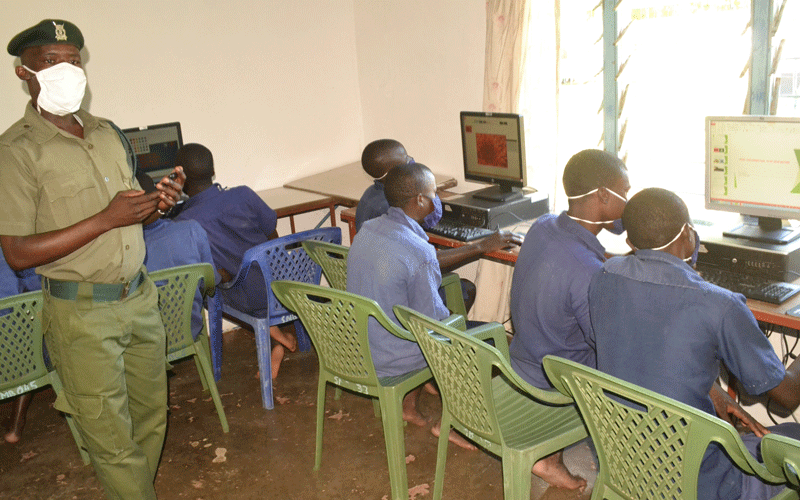Juvenile inmates’ thirst for education steady in spite of Covid

At a time when Covid-19 pandemic has paralysed learning in all institutions in the country for the past seven months, it is a different case in the Prisons department.
Juvenile inmates have been going on with their learning programmes while observing Ministry of Health guidelines.
At the Shimo La Tewa borstal institution mandated with the correction of juvenile offenders, the inmates are still learning technical skills.
Speaking at the institution, Kenya Prisons Coast Deputy Regional Commander, Jonathan Mwangolo said currently, they are fusing the usage of Information Communication and Technology in almost every training of the young prisoners, as a way of preparing them for the modern world.
“Considering that access to education is a constitutional requirement, we are also availing the usage of technology to these children in every training, so that they are well equipped,” Mwangolo said.
Through technology, Mwangolo said the young offenders are able to come up with innovative ideas and be exposed to digital marketing skills.
Better people
At the same time, he warned members of the public against stigmatising children who have been released from juvenile prisons after completing their sentence but urged them to accept them as people of valuable contribution.
Mwangolo said while incarcerated, the juvenile inmates usually undergo an intense rehabilitation process, aimed at instilling high level of discipline and values to help them become better people in the society.
He says by the time of their release, the children are well-equipped to “give back to the society.”
“When they are brought into the facility, they start learning different skills which include carpentry, tailoring, electric engineering, masonry, art welding, agriculture and we also offer the school programme.
This means the children have a lot to offer to the society, they just need to be accepted as reformed people,” said Mwangolo.
He said the society should understand that human is to err and after rehabilitation, everyone needs a second chance.
He spoke during a function held by Safaricom at the institute where they donated equipment worth Sh1 million.
Safaricom Foundation, manager network optimisation, Coast Region John Njathi said the boys who have been incarcerated also deserve the same opportunity as other children.
“ Technical skills have become important in the society and according to research, they are offering 26 per cent of employment, hence these boys are employable,” said Njathi.












